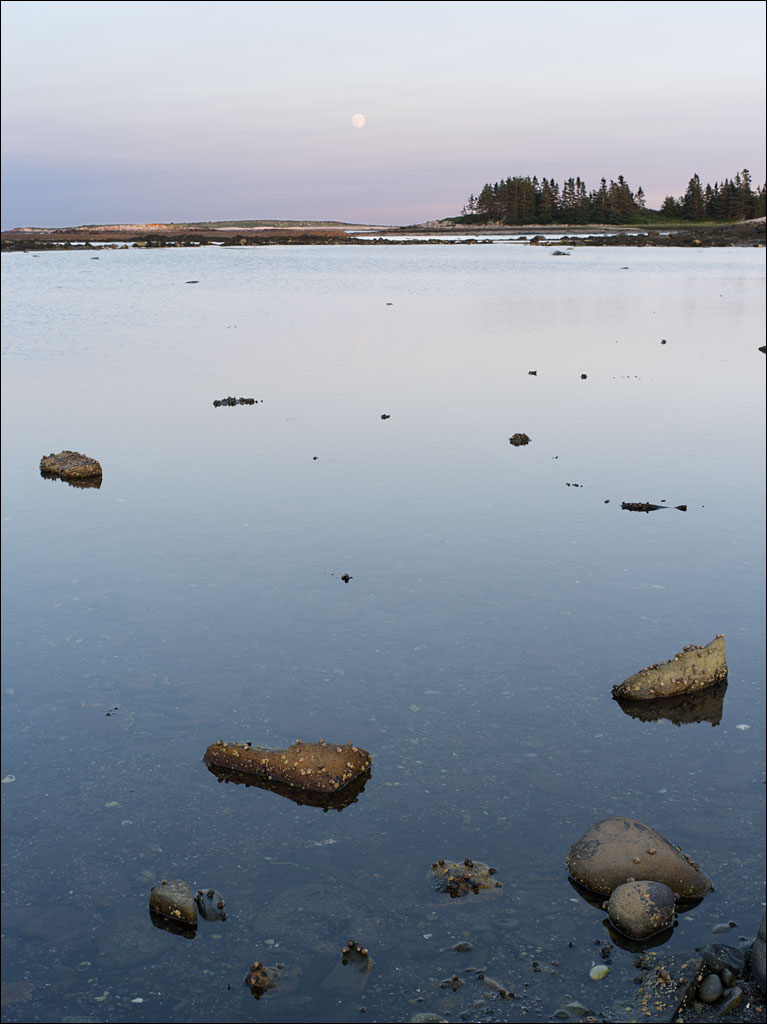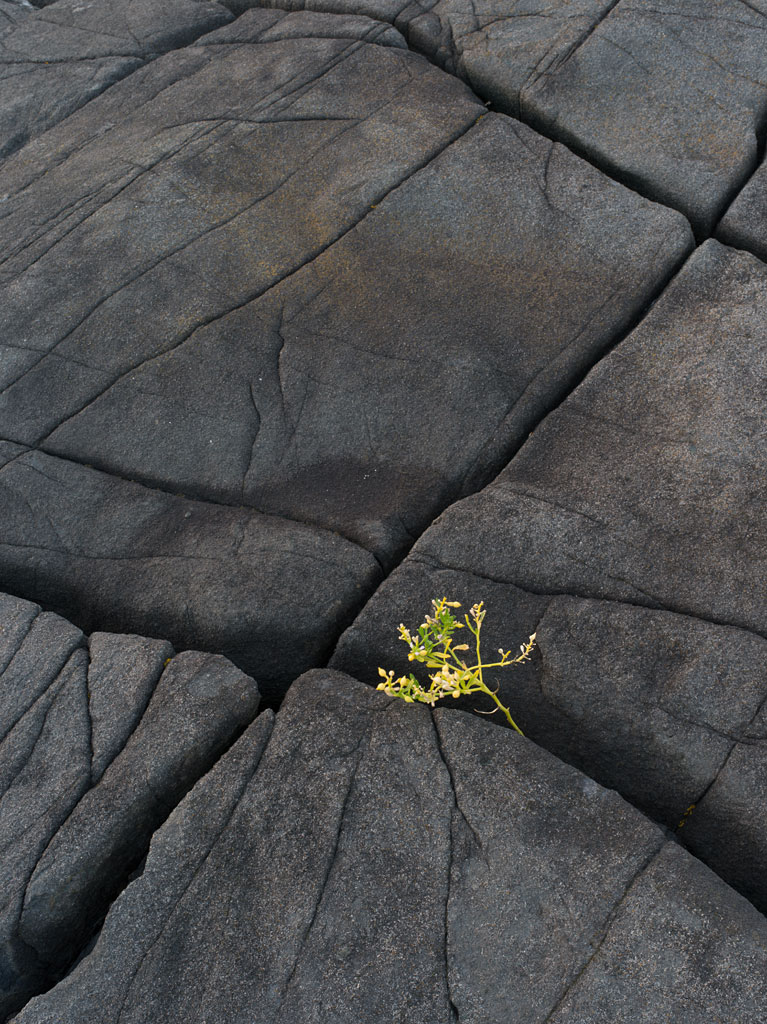 Between the warm granite of Schoodic Point are black seams of basalt. Several hundred million years ago, this basalt (technically diabase) flowed through the fractures in the granite bedrock. The dating of these features shows these represent multiple events over time. Click on the image for a larger view.
Between the warm granite of Schoodic Point are black seams of basalt. Several hundred million years ago, this basalt (technically diabase) flowed through the fractures in the granite bedrock. The dating of these features shows these represent multiple events over time. Click on the image for a larger view.
Category Archives: Acadia National Park
Dusk at Schoodic Point
Illusion of Optics
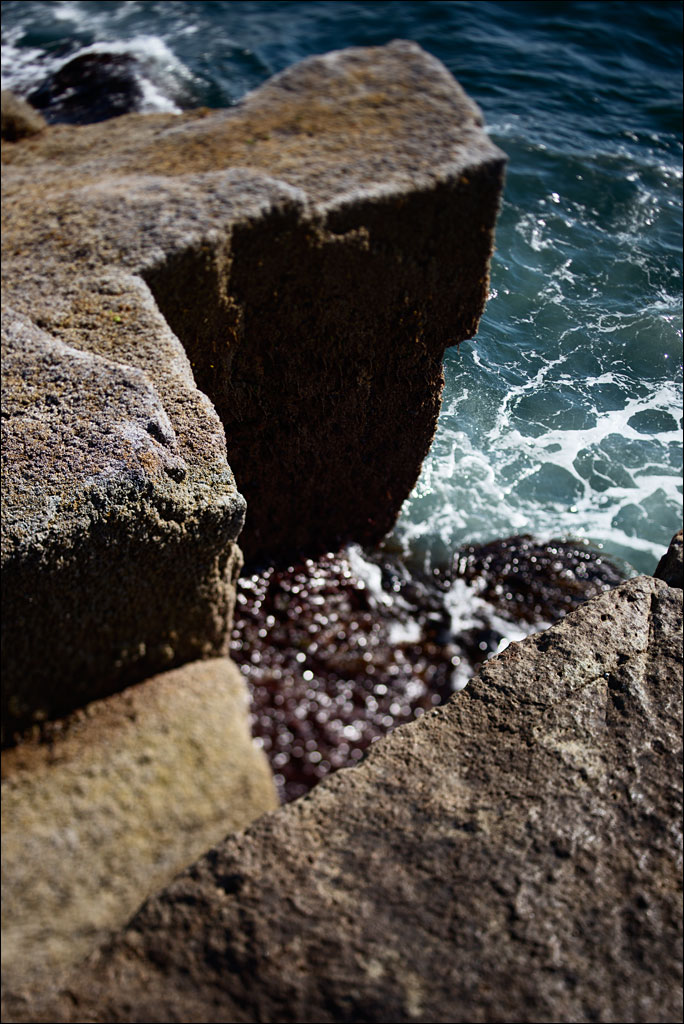 The rocks at Schoodic Point in Acadia National Park. One of the most interesting things about photography is the ability to present the world in a way that a person could not perceive naturally. When a group of objects are in focus, when they appear sharp, it is usually because they are all the same distance from the observer. That does not need to be true for a camera (no Photoshop gimmick here). Click on the image for a larger view.
The rocks at Schoodic Point in Acadia National Park. One of the most interesting things about photography is the ability to present the world in a way that a person could not perceive naturally. When a group of objects are in focus, when they appear sharp, it is usually because they are all the same distance from the observer. That does not need to be true for a camera (no Photoshop gimmick here). Click on the image for a larger view.
Reversing Falls
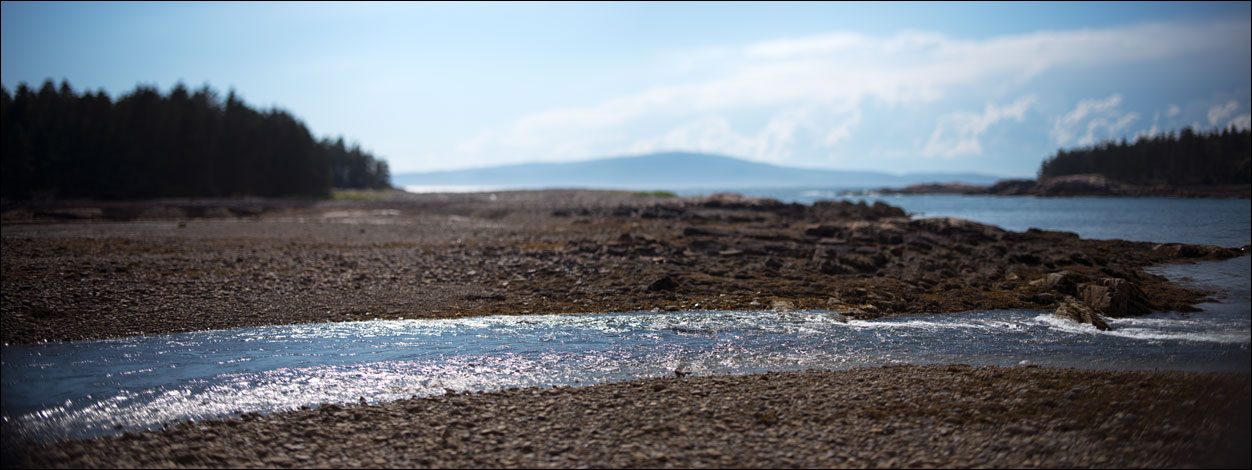 Reversing falls are caused when the water level between one water body and the ocean is different at high and low tide. West Pond on Schoodic Peninsula in Acadia National Park has a reversing falls. This image shows low tide where the land on both sides of the falls, the stream in the foreground, would be submerged at high tide. The trees at the left are on Pond Island, which marks the extent of the high tide. Mt. Desert Island is at the horizon. Click on the image for a larger view.
Reversing falls are caused when the water level between one water body and the ocean is different at high and low tide. West Pond on Schoodic Peninsula in Acadia National Park has a reversing falls. This image shows low tide where the land on both sides of the falls, the stream in the foreground, would be submerged at high tide. The trees at the left are on Pond Island, which marks the extent of the high tide. Mt. Desert Island is at the horizon. Click on the image for a larger view.
Sea and Land
O Holy Night
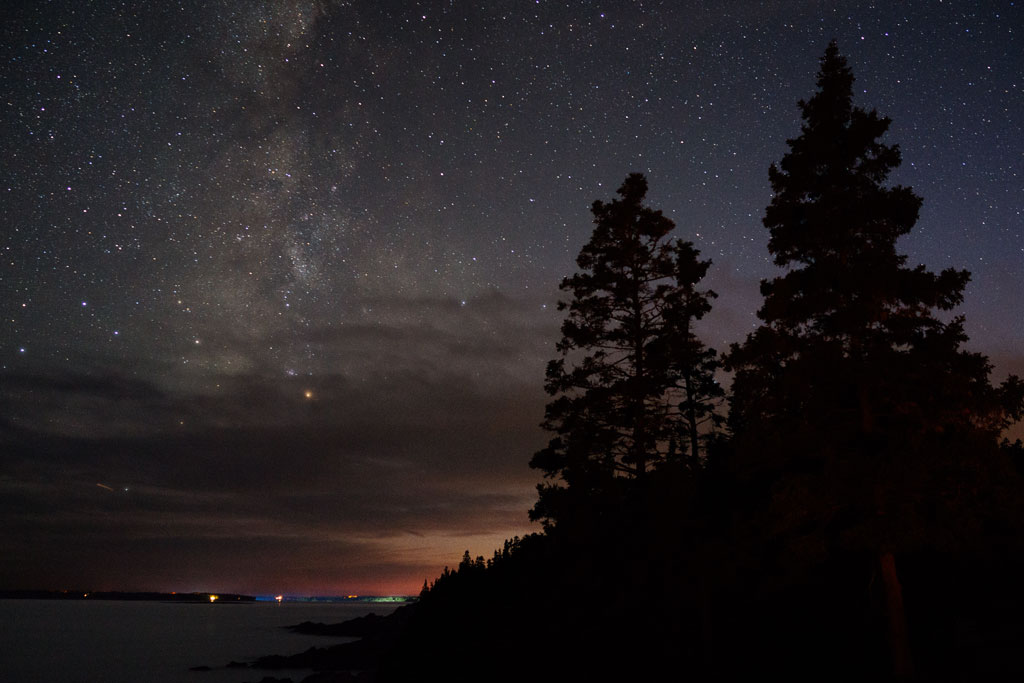 When growing up in England, I was a choirboy. The carols and music seemed to define the season. For me, the songs and images of the night and divinity were powerful. It was only after I left the city and experience dark, star-filled skies that the metaphor took on a reality.
When growing up in England, I was a choirboy. The carols and music seemed to define the season. For me, the songs and images of the night and divinity were powerful. It was only after I left the city and experience dark, star-filled skies that the metaphor took on a reality.
This is the view Naomi and I had when we stopped near Little Hunters Cove in Acadia Nation Park one evening to eat the dinner we had packed. Click on the image for a larger view.
Winter Tide
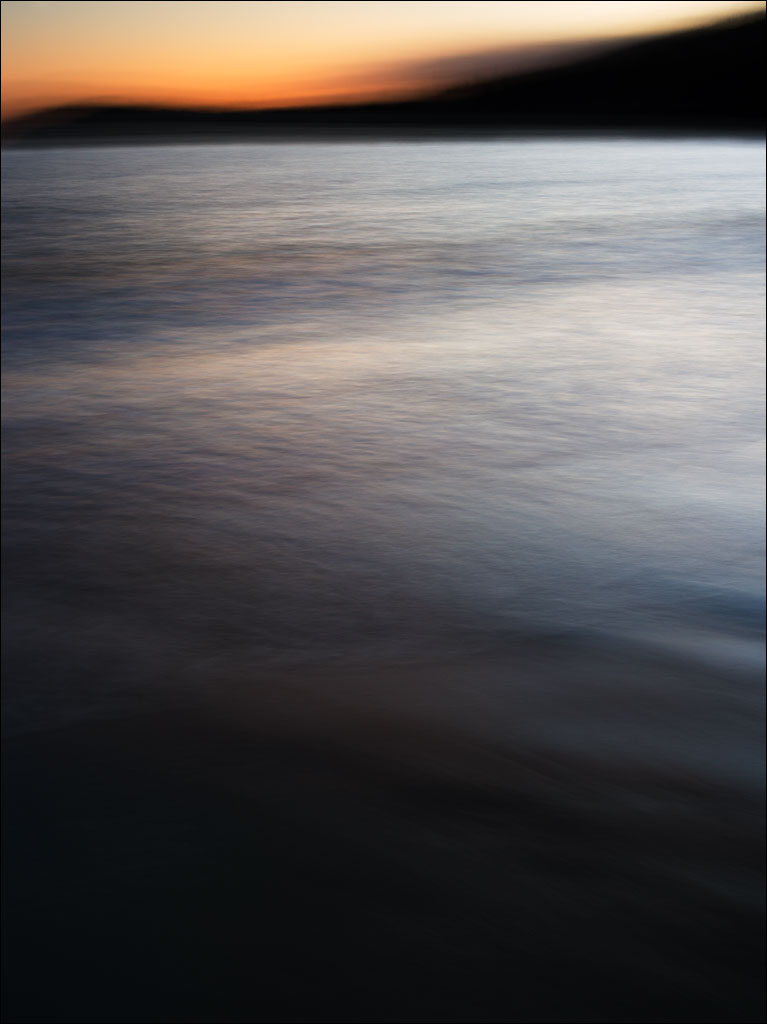 From Sand Beach, Acadia National Park. Click on the image for a larger view.
From Sand Beach, Acadia National Park. Click on the image for a larger view.
Sand Beach
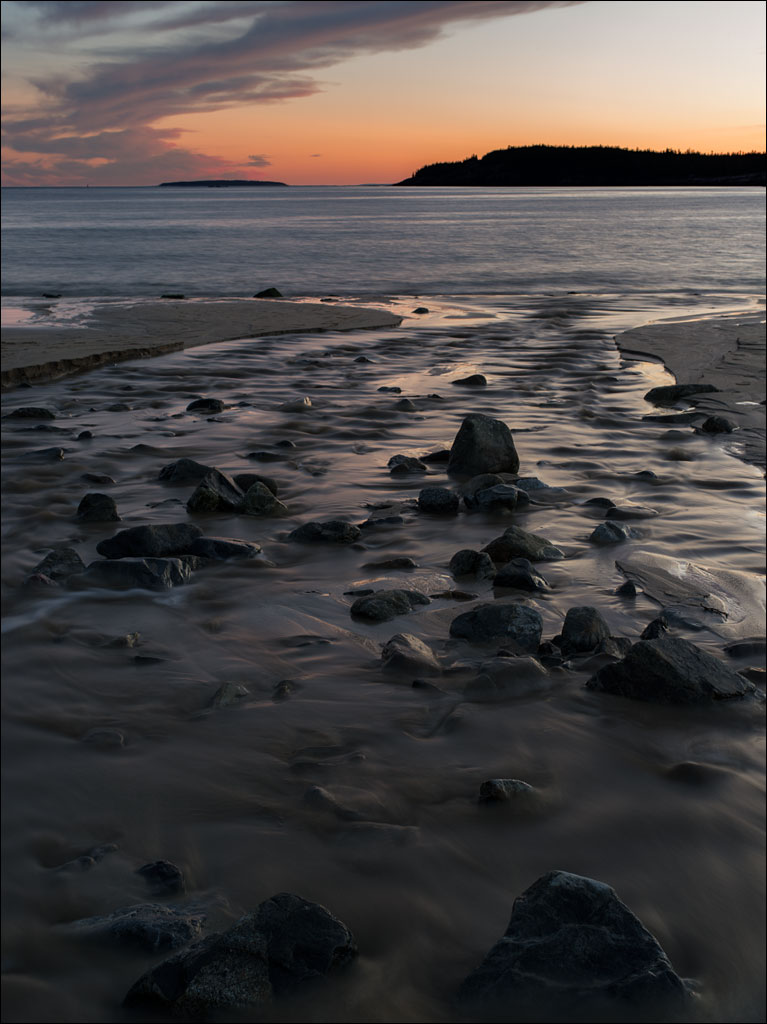 Sand Beach is one of the most popular destinations in Acadia National Park. While Maine has a long coastline, most of it is rocky. In late October, the area is populated by a few dozen people (in summer, when the water temperature is no warmer than 55°F/13°C, huge crowds come to swim). The outlet for Beehive Lagoon cuts through the beach next to Great Head. Otter Cliffs and Baker Island can be seen on the horizon. Click on the image for a larger view.
Sand Beach is one of the most popular destinations in Acadia National Park. While Maine has a long coastline, most of it is rocky. In late October, the area is populated by a few dozen people (in summer, when the water temperature is no warmer than 55°F/13°C, huge crowds come to swim). The outlet for Beehive Lagoon cuts through the beach next to Great Head. Otter Cliffs and Baker Island can be seen on the horizon. Click on the image for a larger view.
Coastal Forests
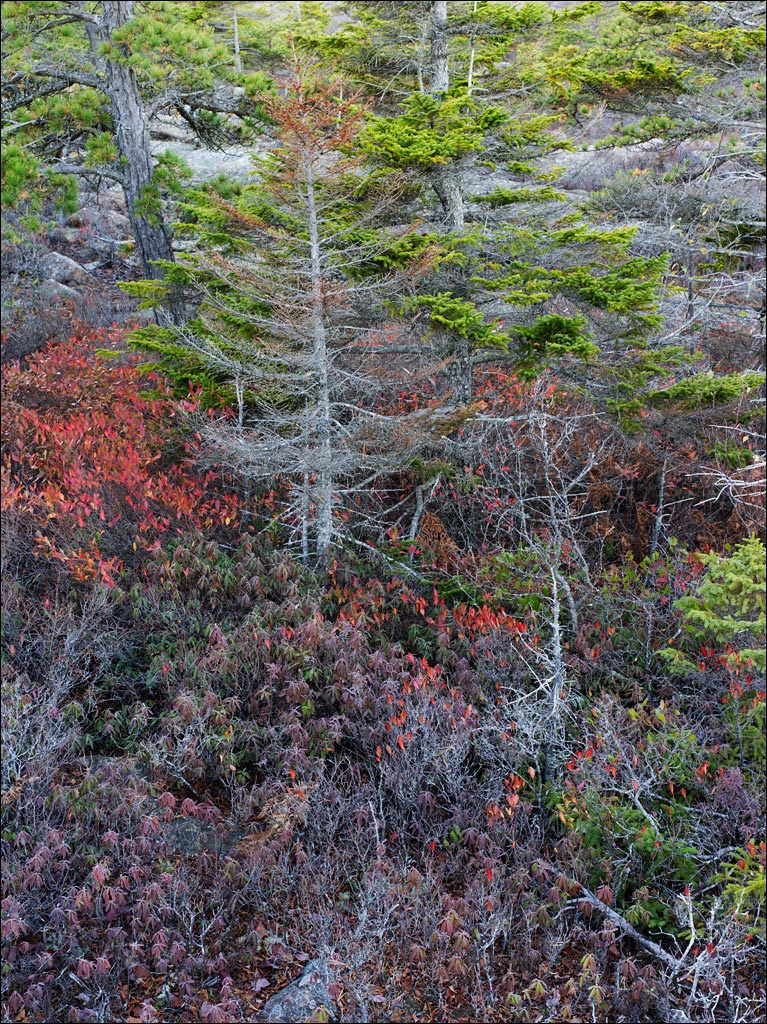 The summit of Great Head in Acadia National Park is a testament of the resilience and diversity of life. Spruce/fir forests dominate the harsh coastal environment. Plants take any opportunity in every small patch of soil between the granite slabs. Late fall stratifies these colonists into a diverse palette of color. Click on the image for a larger view.
The summit of Great Head in Acadia National Park is a testament of the resilience and diversity of life. Spruce/fir forests dominate the harsh coastal environment. Plants take any opportunity in every small patch of soil between the granite slabs. Late fall stratifies these colonists into a diverse palette of color. Click on the image for a larger view.

